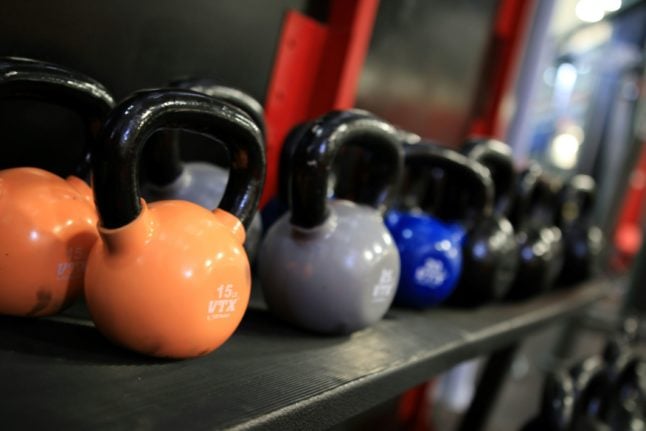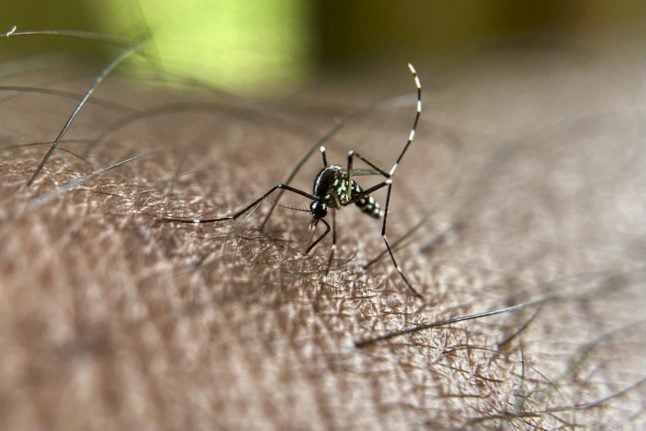Whether you’re looking to join your local gym, take up swimming or diving classes, or play five-a-side football on a regular basis, simply turning up and paying the required fee won’t be enough in Italy as you’ll first need to prove your physical fitness via a medical certificate.
This can frequently come as a shock to foreign nationals as many countries don’t require a medical certificate for non-competitive activities (though they may do for any sport or activity practised at a competitive or professional level).
There are two kinds of medical certificates in Italy: the certificato sportivo non-agonistico (non-competitive sports certificate) and the certificato sportivo agonistico (competitive sports certificate).
Here’s what you need to know about them.
Certificato sportivo non-agonistico
The non-competitive certificate is necessary to engage in any type of regular, non-professional physical activity carried out in contexts or venues that are overseen by a sports club or association.
This includes anything from standard gym memberships to tennis courses to ballet.
The certificate can be issued by your Italian general practitioner (medico di base), by a paediatrician if it is for a child, or by a sports medicine specialist.
READ ALSO: The key Italian vocabulary you’ll need for a doctor’s visit
It can only be released following a series of tests, including: a review of your medical history and that of your family, a medical examination including heart and lung auscultation, blood pressure measurements, and an electrocardiogram (ECG).
In most cases, you won’t be able to undergo all of the above tests during the same visit as the ECG is generally carried out in a separate medical facility.
How much does it cost?
The certificate is issued free of charge for minors that need it to take part in non-competitive extracurricular sporting activities at school (though you’ll still have to pay for the ECG, which costs around €12 in the public sector).
Children under the age of six are not required to get a medical certificate (the requirement kicks in after they turn six).
For adults, issuance costs amount to around €40 on average if you choose to get the certificate through your general practitioner.
The figure is slightly higher – €46 on average – if you go to a private clinic or sports medicine centre.
Whether you go public or private, issuance costs will add to the cost of the mandatory ECG. This is around €12 in the public sector but can cost up to €30-40 in private centres.
The certificate is valid for one year from the date of issuance, after which you must renew it in order to continue practising the relevant sport or activity.
Certificato sportivo agonistico
If you’re a professional athlete or planning on participating in competitions such as a marathon or an Ironman race, you’ll need to obtain a certificato sportivo agonistico from a sports medicine doctor in the public or private sector (this cannot be issued by a general practitioner).
The certificate can only be issued following: a review of your medical history, blood pressure checks, a cardiac stress test (or exercise electrocardiogram), and the analysis of a urine sample.
In many cases, you won’t be able to undergo all of the above tests during the same visit as the cardiac stress test and urine sample analysis are generally carried out in separate medical facilities.
READ ALSO: Why changing your doctor in Italy can be a nightmare
Also, you may be required to undergo additional tests depending on the type of sport or activity you practise.
How much does it cost?
For athletes under the age of 18 and people with disabilities, the certificate is free of charge.
For all other patients, costs range from €30 to 100 (this includes issuance costs and the cost of the required exams) if you choose to get the certificate through your local health authority (or ASL).
Costs may be higher if you choose a private clinic.
Please note that The Local cannot advise on individual cases. For more details on getting a medical sports certificate, seek advice from your doctor or a qualified sports medicine centre.
Please note that The Local cannot advise on individual cases. For more details on getting a medical certificate for sports, seek advice from your doctor or a qualified sports medicine centre.



 Please whitelist us to continue reading.
Please whitelist us to continue reading.
Member comments